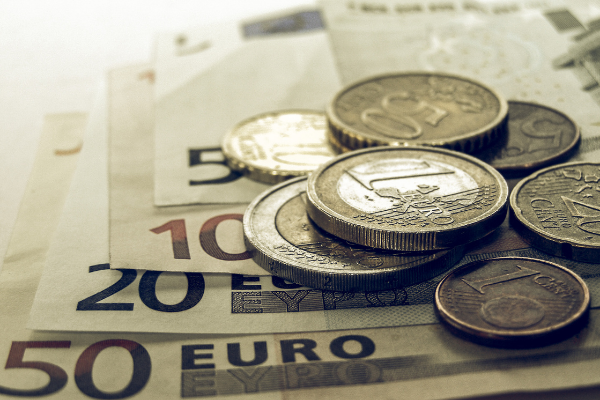The Euro currency dropped to its lowest point against the US Dollar since 2017, after being valued at $1.05 on Wednesday – nine cents less than at the same time last year. The new figures mean that the EU currency has dropped by 13% in a year.
Russia’s decision to close the gas tap to Poland and Bulgaria was the latest blow to the value of the Euro. Skyrocketing inflation and uncertainty about Russia's gas imports have also undermined the currency's value. The European Central Bank has also resisted increasing interest in an effort to fight inflation.
But how will the weak currency affect Europeans on a personal level?
Company to customer
Not only are energy prices rising, but companies are also seeing their costs rise as most imported commodities are denominated in dollars. The dollar is currently soaring since the beginning of the year and is valued with a 40% increase when converted to euros. This has also pushed the value of the euro down.
Companies are trying to digest these increased costs into their selling prices, but that isn’t always as easy as it sounds. Belgium’s federation of food companies, Fevia, warned that supermarkets are pushing back too hard when manufacturers want to raise their prices. However, products are still becoming more expensive as a result of higher commodity prices.
For companies that export goods outside of the eurozone, the weak euro is good news, as it makes European products cheaper in other markets. Industry is the main winner here, though the positive impact on exports and economic growth may be relatively limited.
Related News
- Belgium 'fully prepared' as Russia shuts off gas to Poland and Bulgaria
- 2021 Belgian economy in review: Strong recovery, but troubles abound
- Food and energy woes set to persist, World Bank warns
However, as the single currency has been relatively weak for quite some time now, and as the war in Ukraine and strict lockdowns in China are hindering global supply chains, increasing production remains a challenge.
Families
Meanwhile, higher gas and oil prices are a problem for families, as the price at the pump will increase as a result of oil prices on the international marketing being expressed in dollars. That, once again, means more inflation and less purchasing power for the customer.
Imported products will also be more expensive due to the depreciation of the euro, and the extra inflation pressures the ECB to close the money tap sooner than planned.
The Eurozone is becoming a cheaper destination for tourists outside of the monetary union. Meanwhile, European investors owning US stocks will see their losses limited, as the appreciation of the dollar against the euro compensates for a large part of the fall in the dollar exchange rate.

